Hybrid Parallel

How does a Series Hybrid Electric Vehicle compare to a Parallel Hybrid Electric Vehicle ?
Comparison between Series Hybrid Electric Vehicle and Parallel Hybrid Electric Vehicle highlights the differences in power transmission, battery dependency, fuel efficiency, performance, cost, complexity, and regenerative braking capabilities of both types. The series hybrid is more efficient for city driving, while the parallel hybrid suits highway driving better. The choice depends on the user's driving habits and needs, with both offering environmental and economic benefits over traditional vehicles.

Are parallel hybrid electric vehicles (PHEVs) environmentally friendly ?
Parallel hybrid electric vehicles (PHEVs) are a type of hybrid vehicle that combines an internal combustion engine with an electric motor. While PHEVs have the potential to be more environmentally friendly than traditional gasoline-powered vehicles, their actual environmental impact depends on several factors, including the source of electricity used to charge the battery, the efficiency of the vehicle's components, and the driving habits of the user. One of the main benefits of PHEVs is their ability to reduce emissions compared to traditional gasoline-powered vehicles. By using both an electric motor and an internal combustion engine, PHEVs can achieve better fuel efficiency and lower emissions than conventional cars. However, the environmental impact of PHEVs also depends on how the battery is charged. If the electricity used to charge the battery comes from renewable sources such as solar or wind power, then the environmental benefits are even greater. On the other hand, if the electricity comes from coal-fired power plants or other non-renewable sources, then the overall environmental benefit may be reduced. Another factor that affects the environmental friendliness of PHEVs is the efficiency of their components. The more efficient the electric motor, battery, and internal combustion engine, the less energy they require to operate, which reduces their environmental impact. Manufacturers are constantly working to improve the efficiency of these components, which will help make PHEVs even more environmentally friendly in the future. Finally, the environmental impact of PHEVs also depends on how they are driven. If a driver primarily uses the electric motor for short trips around town and rarely uses the internal combustion engine, then the vehicle's overall environmental impact will be lower. On the other hand, if a driver frequently uses the internal combustion engine for long trips at high speeds, then the environmental benefits may be less significant. In conclusion, while parallel hybrid electric vehicles (PHEVs) have the potential to be more environmentally friendly than traditional gasoline-powered vehicles, their actual environmental impact depends on several factors. By taking these factors into account and making informed choices about how we use our vehicles, we can help reduce our impact on the environment and create a more sustainable future.
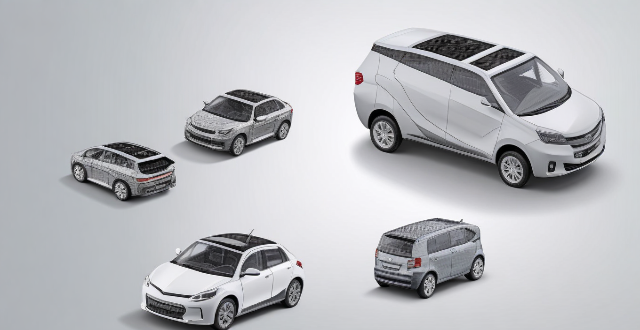
How does a parallel hybrid electric vehicle (PHEV) work ?
Parallel hybrid electric vehicles (PHEVs) are a type of hybrid vehicle that combines an internal combustion engine (ICE) with an electric motor. The two power sources can work independently or together, depending on the driving conditions. PHEVs have three operating modes: ICE only, electric motor only, and combined power. The energy management system controls the operation of the ICE and electric motor, deciding which power source to use based on driving conditions, battery state of charge, and other factors. PHEVs offer benefits such as improved fuel efficiency, reduced emissions, tax incentives, and reduced dependence on fossil fuels.
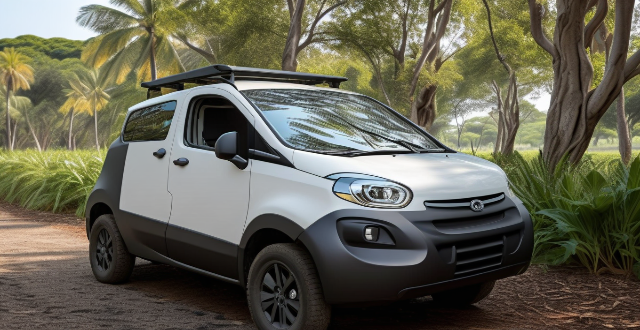
Can you drive a parallel hybrid electric vehicle (PHEV) on electricity alone ?
This article discusses the capabilities of parallel hybrid electric vehicles (PHEVs) and their ability to operate solely on electricity. It explains that PHEVs have an electric-only mode that allows them to drive without using the internal combustion engine, but this mode is typically limited to lower speeds and lighter load conditions. The article also highlights the benefits of electric-only driving, such as reduced emissions, quieter operation, and improved fuel efficiency. However, it notes that several factors can affect the electric-only range of a PHEV, including battery size, driving conditions, vehicle load, and tire pressure. Overall, the article emphasizes the importance of understanding your PHEV's capabilities and limitations to maximize its potential for eco-friendly driving.
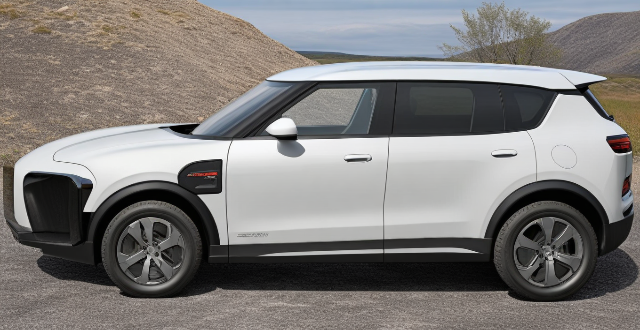
What is the range of a parallel hybrid electric vehicle (PHEV) ?
The range of a parallel hybrid electric vehicle (PHEV) depends on several factors, including battery size, driving habits, road conditions, and fuel economy. Larger batteries provide longer ranges, while smaller batteries offer shorter ranges. Driving habits also play a significant role in determining the range of a PHEV. Road conditions can affect the efficiency of both the internal combustion engine and electric motor, leading to lower overall range. The combined range of a PHEV typically falls within the range of 300-600 miles, depending on the model and driving conditions.
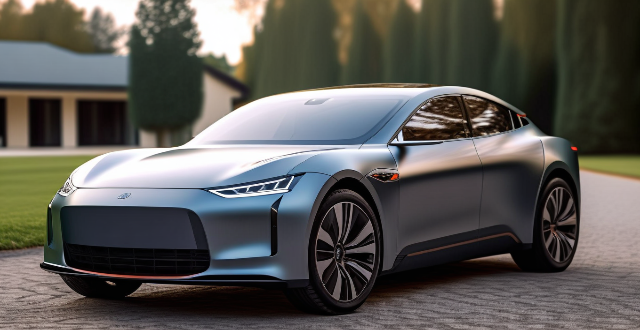
What are the benefits of owning a parallel hybrid electric vehicle (PHEV) ?
Owning a parallel hybrid electric vehicle (PHEV) offers numerous benefits, including reduced emissions and conservation of fossil fuels, leading to environmental advantages. Economically, PHEVs provide fuel cost savings and potential tax incentives. They also offer performance benefits such as silent operation, regenerative braking, and instant torque. Additionally, PHEVs often come with advanced technology and features, preparing owners for a future with more electric vehicles. Overall, PHEVs combine environmental responsibility, economic savings, performance enhancements, and technological innovation, making them an attractive sustainable mobility option.

How long does it take to charge a parallel hybrid electric vehicle (PHEV) ?
The charging time of a Parallel Hybrid Electric Vehicle (PHEV) is influenced by the battery pack size, charging method, and equipment used. Standard charging (Level 1) takes longer, while rapid charging (Level 2) significantly reduces charging time. Examples show that standard charging can take up to 15 hours for a full charge, while rapid charging can reduce this to 2-5 hours. Tips for faster charging include using rapid charging stations and ensuring high-quality charging equipment.
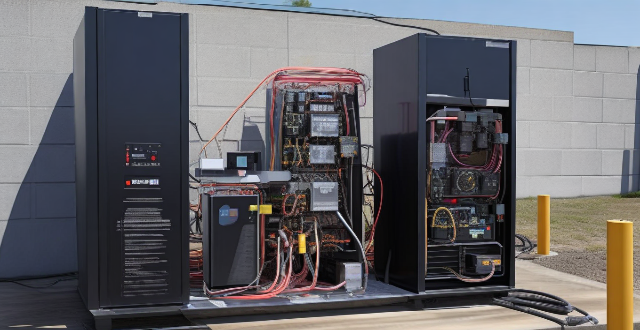
What are the maintenance requirements for a parallel hybrid electric vehicle (PHEV) ?
Maintenance Requirements for a Parallel Hybrid Electric Vehicle (PHEV) include regular check-ups of the battery system, engine maintenance such as oil changes and air filter replacement, transmission maintenance including fluid checks and cooler maintenance, tire rotation and pressure adjustment, brake pad and rotor replacement, suspension maintenance like shock and strut replacement, and other tasks such as coolant system checks, wiper blade replacement, and light bulb checks. By following these requirements, you can ensure your PHEV runs smoothly and safely.

Is there a warranty for iPhone parallel imports ?
Parallel imports of iPhones are not directly imported by the manufacturer or authorized distributors, but rather by third-party resellers who purchase the devices from other countries and sell them in their own country. These phones may not come with a warranty from the manufacturer or authorized service providers. According to Apple's warranty policy, products purchased from an unauthorized reseller are not eligible for coverage under the Apple One-Year Limited Warranty. This means that if you buy a parallel import iPhone, it will not be covered by Apple's standard warranty. Some resellers of parallel imports may offer their own warranties or extended service plans, but these warranties are typically less comprehensive than those offered by Apple and may have limitations on what is covered. Purchasing a parallel import iPhone can come with certain risks, including no manufacturer support, potential quality issues, difficulty in repairs, and software updates might be delayed or unavailable for parallel imports due to regional differences in network compatibility and software certification processes. Before deciding to purchase a parallel import iPhone, consider the following factors: cost savings vs. risk, reseller reputation, understand your rights as a consumer, and explore alternative options such as refurbished models sold by Apple or certified pre-owned devices from reputable sources that still offer some form of warranty protection.

How do parallel hybrid electric vehicles (PHEVs) compare to traditional gasoline cars in terms of performance ?
Parallel Hybrid Electric Vehicles (PHEVs) offer better acceleration and fuel efficiency than traditional gasoline cars but may have lower top speeds and require more time for recharging. Gasoline cars have higher top speed capabilities and quicker refueling but are less efficient and require more maintenance. The choice between the two depends on individual needs and preferences.

Can iPhone parallel imports be updated normally ?
**Can iPhone Parallel Imports Be Updated Normally?** - **iOS Updates:** Available globally for all iPhones, including parallel imports. - **App Updates:** Unaffected by the import status, updates through the App Store are standard. - **Considerations:** Warranty, support, and carrier compatibility may vary. - **Conclusion:** Parallel imports can be updated normally but come with additional considerations.

Are iPhone parallel imports covered by the national three-pack policy ?
The National Three-Pack Policy is a set of regulations aimed at protecting consumers' rights and interests in purchasing electronic products, including mobile phones. iPhone parallel imports are Apple iPhones that are imported into a country through channels other than the official Apple distributor. These imports may come from different regions or countries where the iPhone models are sold at a lower price. The coverage of parallel imports under the national three-pack policy is often ambiguous. Some parallel importers may offer their warranty and service support, but it may not be equivalent to what is provided by official channels. While most parallel imports are genuine iPhones, there is a risk of encountering counterfeit or refurbished devices that do not meet the same quality standards as those sold through official channels. Parallel imports can be cheaper since they may come from regions with lower pricing or take advantage of currency exchange rates. However, this lower price comes with potential risks regarding warranty, service support, and product quality. Consumers should carefully consider the potential risks and benefits before opting for parallel imports. It is essential to ensure that you are buying from a reputable seller who can provide adequate warranty and service support for your iPhone purchase.

What risks are involved in buying an iPhone parallel import ?
Purchasing an iPhone through a parallel import, which means buying it from a source other than the authorized dealer or official Apple store, can pose several risks. Here are the potential dangers and drawbacks you should consider before making such a purchase: - **Lack of Warranty or Support**: Parallel imports often do not come with the standard warranty provided by Apple. If something goes wrong with your device, you may have to pay for repairs out of pocket. You may not have access to Apple's customer support services, which can be crucial for troubleshooting and technical assistance. - **Uncertainty About Product Authenticity**: There is a risk of buying counterfeit iPhones that look like the real product but perform poorly and lack the quality of genuine Apple devices. Some parallel imports may have undergone unauthorized repairs or modifications that could compromise the device's functionality and durability. - **Difficulties with Software Updates**: Parallel imports might not receive software updates at the same time as officially purchased iPhones, or might not receive them at all. Updates may not be compatible with your device if it has been altered or is not an authentic Apple product. - **Hardware Variations**: The iPhone model you receive might vary slightly in hardware specifications compared to the version sold in your country. Your iPhone might not be optimized for local networks, leading to issues with connectivity and signal strength. - **Aftermarket Accessories Compatibility**: Accessories like cases and screen protectors bought locally might not fit perfectly due to slight variations in the phone's dimensions. - **Guarantee of Return or Exchange**: Returns or exchanges can be more complicated with parallel imports, as the seller's policies might be less consumer-friendly than those of official retailers. - **Potential for Financial Fraud**: Unscrupulous sellers might take advantage of buyers, selling fake or stolen goods, or even taking payment without delivering the product.

What should I pay attention to when buying an iPhone parallel import ?
Buying an iPhone parallel import requires careful consideration and research to ensure that you get a genuine product at a fair price. Here are some tips to help you make a wise purchase: # 1\. Check the Seller's Reputation Make sure you buy from a reputable seller with good reviews and feedback. You can check online forums or social media platforms for reviews and recommendations from other buyers. # 2\. Ensure Compatibility with Your Network Before making a purchase, check if the iPhone is compatible with your local network provider. Some parallel imports may not work on certain networks due to differences in technology standards. # 3\. Check for Warranty and After-sales Service Parallel imports may not be covered by the manufacturer's warranty, so it's essential to check if the seller offers any warranty or after-sales service. This will give you peace of mind and protection against any potential issues that may arise. # 4\. Verify the Authenticity of the Product Be cautious of counterfeit products that may look like genuine iPhones but are actually fake. Check for signs such as misspellings, low-quality materials, or incorrect logos. You can also verify the authenticity of the product by checking the serial number on Apple's website. # 5\. Be Aware of Customs Duties and Taxes Parallel imports may be subject to customs duties and taxes, which can add up to the overall cost of the product. Make sure you factor in these additional costs when comparing prices with locally sourced iPhones. In conclusion, buying an iPhone parallel import requires careful consideration and research to ensure that you get a genuine product at a fair price. By following these tips, you can make an informed decision and enjoy your new iPhone without any issues.
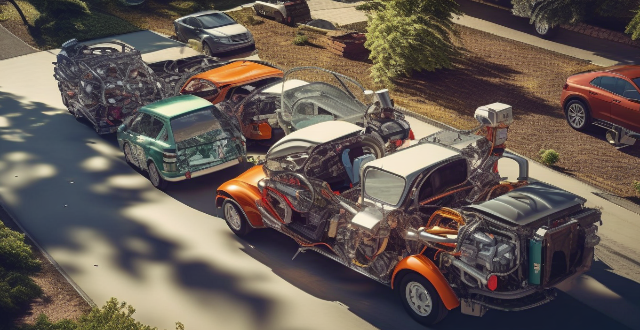
How long do hybrid cars typically last ?
Hybrid cars, which combine a conventional internal combustion engine with an electric motor, are known for their fuel efficiency and environmental benefits. The text discusses the lifespan of hybrid cars, battery life, maintenance, driving habits, usage, factors affecting hybrid car lifespan, tips for maximizing your hybrid car's lifespan, and concludes that many hybrid vehicles can last between 100,000 to 200,000 miles or more when properly maintained.

Are hybrid cars safe in an accident ?
Hybrid cars are generally as safe as traditional cars in accidents, featuring multiple safety measures like battery pack protection and automatic disconnection of high voltage systems. However, potential risks include battery fires and electric shocks, which manufacturers mitigate through advanced cooling systems and rapid de-energizing upon impact. Repair costs for hybrid systems can be higher due to specialized parts and labor requirements.
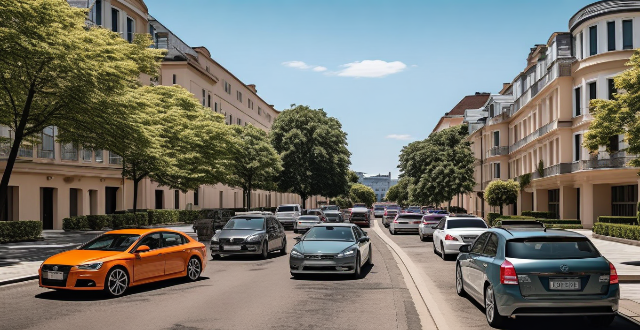
What is the fuel efficiency of a hybrid car ?
Hybrid cars are more fuel-efficient than traditional gasoline-powered vehicles, with an average range of 40-50 mpg in city driving and 35-45 mpg on the highway. This increased efficiency offers benefits such as reduced fuel costs, lower emissions, longer engine life, and potential tax incentives. If you're looking for a more environmentally friendly and cost-effective way to get around, consider purchasing a hybrid car.

Can you tow with a hybrid car ?
Towing with a hybrid car is possible, but it depends on the specific model and its towing capacity. Some hybrids are designed for towing, while others are not. It's important to check your vehicle's manual or consult with the manufacturer to determine if your hybrid car can tow and what its maximum towing capacity is. Factors to consider when towing with a hybrid car include towing capacity, braking system, transmission, fuel efficiency, and battery life. The added weight of a trailer can impact these factors, so it's important to plan accordingly.
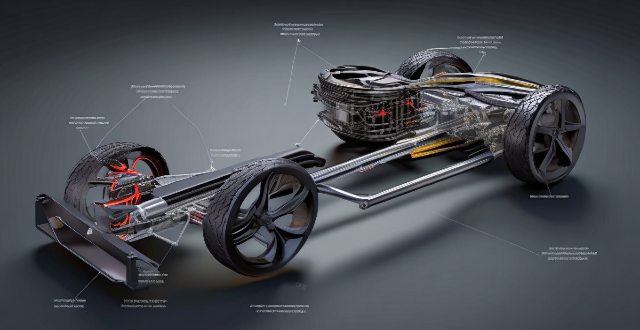
How does a gasoline hybrid car work ?
Gasoline hybrid vehicles, known as HEVs, merge an ICE with an electric motor for enhanced efficiency and reduced emissions. Key components include the ICE, electric motor, battery pack, transmission, and a generator/alternator. These cars can operate in various modes: fully on ICE power, purely electric, combined power, or through regenerative braking. The energy management controller optimizes power distribution for peak efficiency. Benefits of gasoline hybrids include better fuel economy, lower emissions, extended brake life, and potential tax incentives.
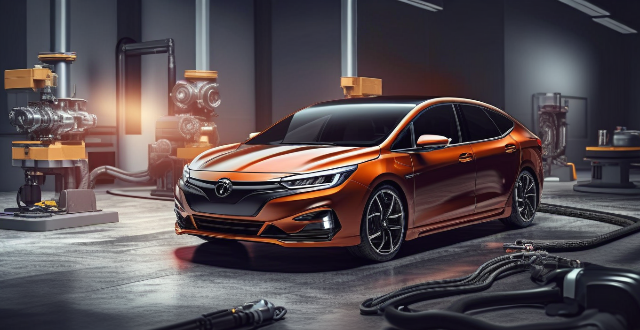
Do gasoline hybrid cars require special maintenance ?
This text discusses the maintenance requirements for gasoline hybrid cars, which combine a conventional engine with an electric motor for added efficiency. While these vehicles do not require extensive special maintenance, there are specific components that need attention. Regular maintenance such as oil changes, tire rotations, brake checks, and air filter replacements are still essential. Additionally, hybrid-specific maintenance includes monitoring battery health, checking the regenerative braking system, ensuring proper cooling of the electric motor, and maintaining transmission fluid levels. It is important to refer to the vehicle's owner's manual for specific maintenance schedules and seek out professional service when needed. By addressing both conventional and hybrid-specific maintenance needs, gasoline hybrid cars can run reliably and efficiently.

What are some popular diesel hybrid car models ?
Diesel hybrid cars are becoming increasingly popular due to their fuel efficiency and lower emissions. Here are some of the most popular diesel hybrid car models: The Audi A3 TDI e-tron is a compact luxury car that combines a 2.0-liter TDI diesel engine with an electric motor. It offers up to 150 horsepower and can travel up to 31 miles on electric power alone. The Volkswagen Jetta TDI Hybrid is a midsize sedan that features a 1.6-liter TDI diesel engine paired with an electric motor. It provides excellent fuel economy and low emissions, making it an ideal choice for environmentally conscious drivers. The Peugeot 308 HDi Hybrid is a compact hatchback that combines a 1.6-liter HDi diesel engine with an electric motor. It offers impressive fuel economy and reduced CO2 emissions, while still providing plenty of power and performance. The Skoda Octavia iV is a spacious family car that features a 2.0-liter TDI diesel engine combined with an electric motor. It offers up to 240 horsepower and can travel up to 37 miles on electric power alone, making it a great option for long trips. The Volkswagen Passat TDI Hybrid is a midsize sedan that combines a 2.0-liter TDI diesel engine with an electric motor. It provides excellent fuel economy and low emissions, while also offering plenty of space and comfort for passengers.
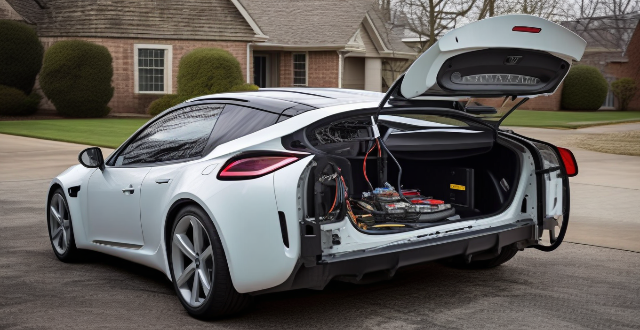
Can you convert a regular diesel car into a diesel hybrid car ?
Converting a regular diesel car into a diesel hybrid is possible but involves technical challenges, high costs, and potential legal and warranty issues. It requires installing a battery pack, integrating electric motors, and modifying the drivetrain and control systems. Professional assistance is recommended due to the complexity of the project. The financial investment may not be justified compared to buying a new hybrid vehicle. Legally, modifications could void the warranty and affect insurance coverage, and compliance with emissions and safety standards must be ensured.
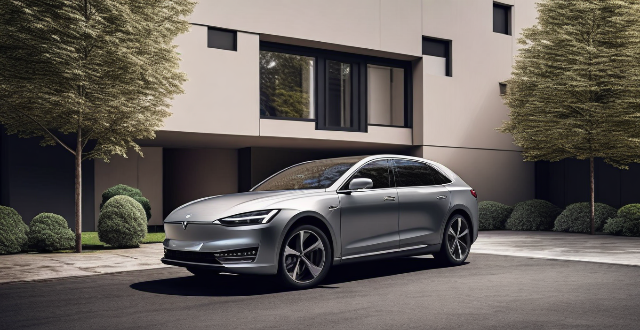
Can you drive a hybrid car in electric mode only ?
Hybrid cars offer the fuel efficiency of electric vehicles and the range of gasoline-powered cars. Some hybrids can drive in electric mode under certain conditions, such as battery charge level and speed. Advantages include reduced emissions and a quieter driving experience, but there are also drawbacks like limited range and slower acceleration. Examples include the Toyota Prius and Honda Insight.
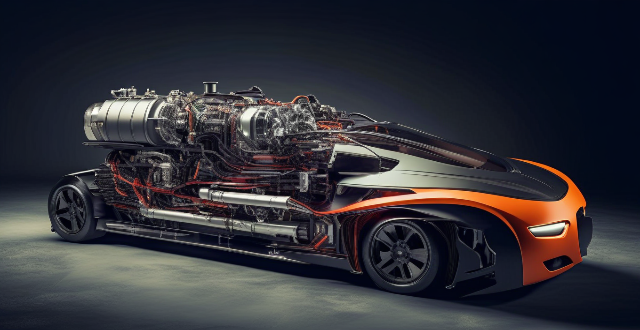
Can I still use gasoline in a gasoline hybrid car ?
Gasoline hybrid cars combine a traditional gasoline engine with an electric motor for improved fuel efficiency and reduced emissions. While they still require gasoline to operate the internal combustion engine, they offer significant savings in fuel costs over time. To maximize fuel efficiency in a gasoline hybrid car, drivers should practice eco-driving techniques, perform regular maintenance, and utilize regenerative braking settings. Gasoline hybrid cars represent a step towards reducing our reliance on fossil fuels and transitioning to cleaner energy sources.

What are the benefits of a gasoline hybrid engine ?
The article discusses the advantages of a gasoline hybrid engine, which is a combination of a traditional internal combustion engine and an electric motor. The benefits include improved fuel efficiency through reduced fuel consumption, regenerative braking, and start-stop technology; lower CO2 emissions and decreased pollutants resulting in cleaner air quality; and enhanced performance with instant torque, smooth driving experience, and extended brake life due to regenerative braking. Overall, gasoline hybrid engines provide a balance between power and efficiency, making them an attractive option for eco-conscious drivers.
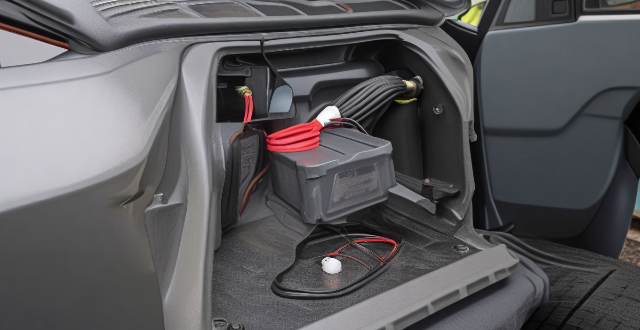
How often do you need to replace the batteries in a hybrid car ?
Replacing the batteries in a hybrid car is not a frequent task, and its lifespan can vary between 100,000 to 150,000 miles or even more. The lifespan of the battery pack can be affected by driving habits, climate, and maintenance. Signs of a failing battery pack include reduced fuel efficiency, decreased performance, dashboard warning lights, and unusual noises or vibrations. If you need to replace the batteries in your hybrid car, consult a certified mechanic, choose the right battery pack, have it installed professionally, and take your hybrid car for a test drive to ensure proper functioning.
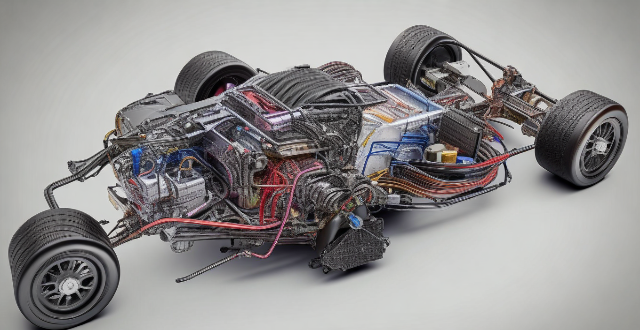
How do electric cars compare to hybrid cars ?
Electric cars run solely on electricity and produce zero emissions, while hybrid cars combine a gasoline engine with an electric motor for improved fuel efficiency. Electric cars offer environmental benefits and lower operating costs but have limited range and long charging times. Hybrids provide a balance between gasoline-powered vehicles and electric cars, with improved fuel efficiency and no range limitations but still rely on gasoline and produce emissions. The choice between the two often depends on individual needs and preferences.

Are gasoline hybrid cars better for the environment than traditional gasoline cars ?
Gasoline hybrid cars, also known as hybrid electric vehicles (HEVs), are becoming increasingly popular due to their potential environmental benefits. These vehicles produce fewer emissions compared to traditional gasoline cars and have better fuel efficiency. They also use regenerative braking technology, which captures energy normally lost during braking and stores it in the battery, further improving fuel efficiency and reducing emissions. However, gasoline hybrid cars also have drawbacks such as higher upfront cost, limited electric-only range, and potential environmental impacts from battery production and disposal. Traditional gasoline cars, on the other hand, are generally less expensive than gasoline hybrid cars and have a widespread refueling infrastructure. They are also often simpler and more reliable than gasoline hybrid cars. In conclusion, gasoline hybrid cars offer several environmental benefits over traditional gasoline cars, but they also come with drawbacks. The decision between a gasoline hybrid car and a traditional gasoline car depends on individual preferences, priorities, and circumstances.

Is it worth investing in a diesel hybrid vehicle for long-distance travel ?
Diesel hybrid vehicles offer high fuel efficiency and performance, making them suitable for long-distance travel. However, they come with higher costs and potential emission concerns. Alternatives like gasoline hybrids and electric vehicles might be worth considering depending on individual needs and circumstances.
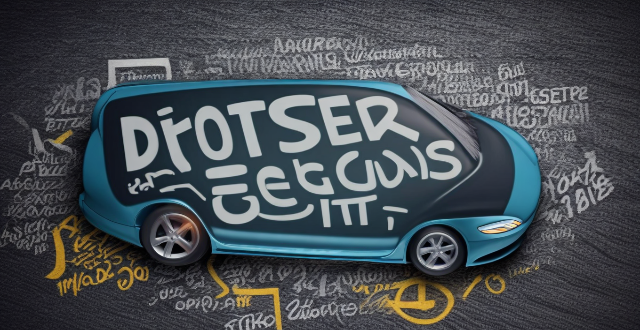
Can you still get a good deal on a used hybrid car ?
The text discusses whether it is still possible to get a good deal on a used hybrid car, considering factors such as depreciation rates, technological advancements, fuel prices, and environmental concerns. It outlines the pros and cons of buying a used hybrid car and provides tips for getting a good deal. The conclusion states that while the market is subject to various dynamics, it is still possible to find a good deal on a used hybrid car by employing smart buying strategies.